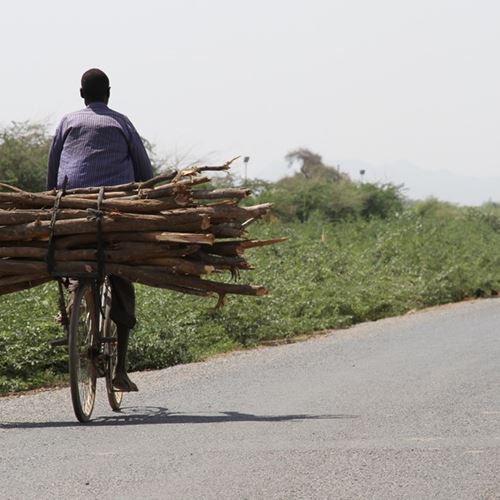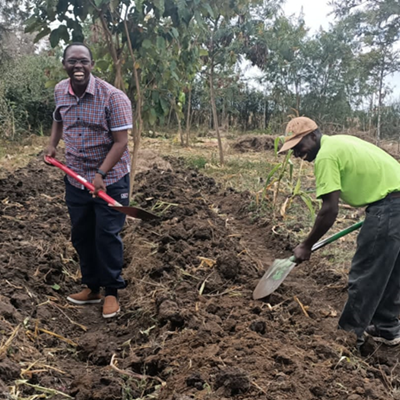David Kang’ethe retired from DRC in June of 2020 after a fruitful, energetic, and productive 10 years with the organisation. His enthusiasm for the climate resilience projects which he assisted getting off the ground, led him to integrate the permaculture techniques being taught to affected populations, into his personal life and he is now a successful permaculture farmer.
Kang’ethe was the first Country Director for DRC Kenya and was responsible for an extensive expansion of the country programmes over the past ten years. In an interview, David explains that prior to 2018, DRC Kenya’s livelihood assistance focused on conventional forms of vocational training - building skills in beauty, tailoring, embroidery, textile production, electrical installation, and mechanical work. There had been small scale permaculture trainings, however, after onboarding a dedicated Regional Resilience and Livelihoods Coordinator (Natalie Topa) the permaculture-based projects substantially took off. Because of its success, these programmes are now a cornerstone of the assistance the DRC Country Office provides, particularly in northern and eastern parts of Kenya. With the increased focus on the climate resilience programming and by hiring an expert “we [were] taken to another level, where we are now able to do, for example, the [permaculture garden] beds, to harvest rainwater and store it in the soil, apply mulch and make our own fertilizers and also move from using chemicals to more of what you would call organic farming. Permaculture is quite different from the agriculture we did previously.”
Refugee and host community groups receive training on permaculture-based techniques focusing particularly on how to grow diverse fruit and vegetables using very little water. This is important in northern and eastern parts of Kenya where communities face significant and protracted periods of drought throughout much of the year. “We train refugee groups and host communities on… harvesting the rainwater that falls in those areas… [to] support the growth of vegetables and fruits …[there is a focus on] being able to [farm] in an area that is very, very dry.” Both the knowledge and technique can be adapted to several other contexts. Kang’ethe outlined that in Dadaab refugee camp, DRC has been working with approximately 5000 people and in Kakuma - about 3000 people on spreading this resilience design technique. By this work, it was noted that DRC has extended beyond the refugee camps and is part of an EU funded consortium in the Mandera triangle which is also introducing permaculture-based resilience programming techniques. Because of the success and accomplishments of the programmes, also local government authorities are employing this approach now.

